Natural pest control is an important consideration when it comes to establishing and maintaining an aquaponics system. Keeping your aquaponic system organic is one way to make sure the plants, fish, and food you harvest are safe and edible. Too many chemicals can be dangerous to both the fish and the people working with them. Studies have also shown a strong correlation between chemicals in the food system and many illnesses and diseases. With this in mind, you will want to find a safe but effective form of natural pest control. To do this, you need to know your enemy pests, understand common organic techniques for repelling or eliminating pests, and how beneficial bugs can work wonders in your aquaponic garden.
Aquaponic Pests
In an aquaponic system, pests can be just as big of a problem as they are for other gardening or farming methods. This is especially true of outdoor or backyard setups although it can be an issue indoors as well. Aquaponic pests are no different from your common garden pests, and they can cause some serious damage to your plants and the flowers, fruits, or vegetables they produce. Some of the worst insect offenders are:
- Aphids
- Caterpillars
- Tomato Hornworms
- Colorado Potato Beetles
- Mealybugs
- Cutworms
- Squash Vine Borers
- Squash Bugs
- Various plant-eating beetles
These insects can wipe our your entire crop if not handled properly, but using pesticides can be a real problem in an aquaponic system, even if organic gardening is not your focus. The harsh chemicals and poisons found in most pesticides can be extremely dangerous to your fish.
So how do you stop insects from destroying your plants while keeping your fish safe? You do it with proven organic gardening methods. There are plenty of well-documented ways to safely eliminate or reduce the number of pests that are attacking your plants. Begin by checking the plants regularly for pests. Hand removal will work wonders for visible pests you find on your plants. Just pick off and destroy any bugs you see. This is fairly labor intensive, so it is a good idea to use hand removal in conjunction with other methods. One popular method used in both aquaponics and traditional methods is the use of pest-repelling plants. Some plants just drive pests away, and you can plant them alongside the produce you want to grow. You can plant artemisias, nasturtiums, catnip, dill, chrysanthemums, chives, petunias, mint, and more as a form of natural pest control.
Another simple organic gardening method you can use in your aquaponic system is bug netting. This creates a physical barrier around the plants and will prevent many pests from getting in. This method works indoors and outdoors, but regular inspection of the plants is still strongly recommended. You can also look at non-pesticide methods of destroying the pest population. Glue traps are available and can be used throughout the grow beds of your aquaponic system to catch insects. The only drawback is these traps will catch insects that you want to have around like pollinators and other beneficial bugs. This brings us to another common technique for eliminating pests that you can use, beneficial insects.
Beneficial Insects
Bringing some insects that prey on plant-damaging species into your aquaponic system is an excellent method of organic pest control. There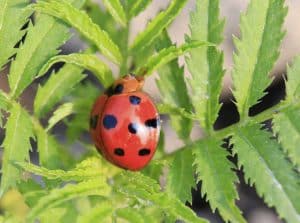
- Ladybugs/Lady Beetles – Both the adult and larval forms of these little guys can work wonders when it comes to destroying garden pests. They eat aphids, smaller beetles and caterpillars, and most insect eggs. Some species even eat mealybugs, mites, and other soft-bodied insects. They can even devour powdery mildew, which is another common problem in aquaponic systems.
- Lacewings – The larvae of the lacewing eat just about everything from aphids to caterpillars to mealybugs. They are also quite fond of insect eggs and other larvae. Adults of the species are also known to eat other insects, although their preferred food is nectar.
- Spiders – Although not technically an insect, these creatures are great at keeping pest populations under control. Even young or smaller spiders can do a great job of eating up insects that destroy your plants. Anything that finds its way into their web, including caterpillars, aphids, moths, cutworms, squash bugs, and budworms.
- Tachinid Flies – Their larvae can devour caterpillars, cutworms, squash bugs, beetles, earwigs, and even grasshoppers. The adults have also been known to eat other insects, but generally prefer nectar and pollen, making them excellent pollinators too.
- Ground Beetles – The adults of this species are fairly large, and just one can eat quite a few garden pests. They will help keep slugs and snails, cutworms, caterpillars, potato beetles, squash vine borers, root maggots, and budworms under control. Soldier Beetles are another similar species that offer the same benefits.
With a little effort, it is entirely possible to keep bugs from destroying your aquaponic plants without doing any harm to your fish or yourself in the process. Avoiding pesticides and focusing on natural pest control methods will help ensure the success of your aquaponic system. You can keep damaging insects out of your garden with preventative methods like planting pest-repelling plants or using nets or traps. You can also employ some beneficial bugs that will help keep the damaging insects under control by eating them. By using a combination of these methods, you will be able to keep your system running smoothly and reap a healthy harvest.

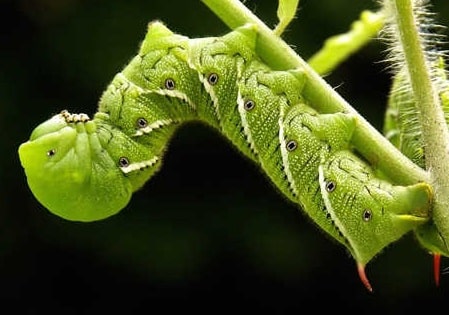


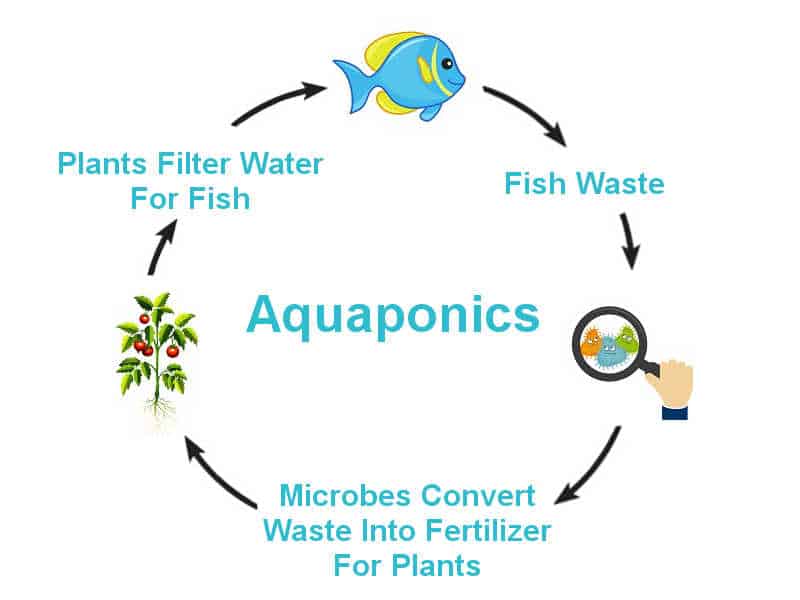
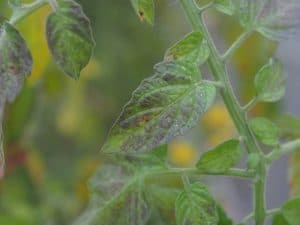


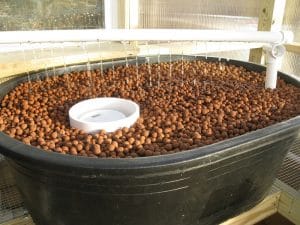
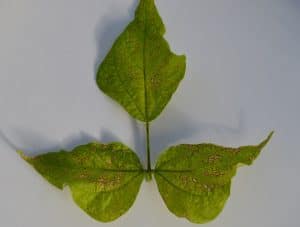
Leave A Comment